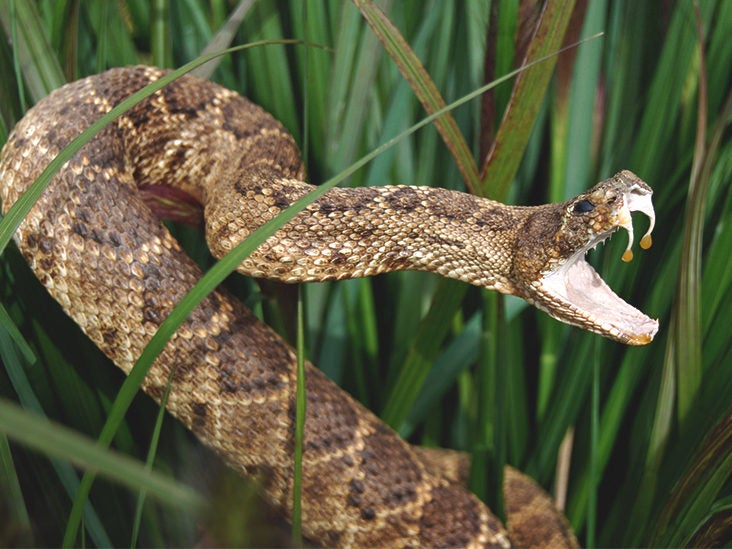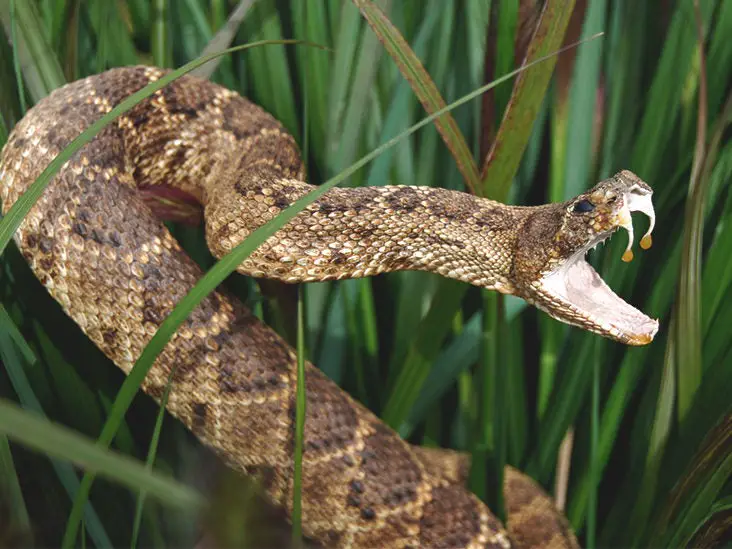Rattlesnakes are one of the most venomous snakes in the world, and their bite can be fatal if not treated immediately. But, can you really die from a rattlesnake bite? The answer is yes, and it’s essential to understand the dangers and risks associated with these deadly snakes.
Rattlesnake bites can cause severe pain, swelling, and tissue damage, and in some cases, can lead to death. However, with proper medical attention and treatment, the chances of survival are high. Let’s explore the dangers of rattlesnake bites and what you should do if you encounter one.
Yes, you can die from a rattlesnake bite if left untreated. Rattlesnakes inject venom into the bloodstream, which can cause severe pain, swelling, and tissue damage. The venom can also affect the nervous system, leading to paralysis or respiratory failure. Seek immediate medical attention if you are bitten by a rattlesnake.

Can You Die From a Rattlesnake Bite?
Understanding the Danger of Rattlesnake Bites
Rattlesnakes are venomous snakes that can be found across North and South America. These snakes are known for their distinctive rattle, which they use as a warning sign to potential predators. While rattlesnakes generally prefer to avoid humans, they will strike if they feel threatened or cornered.
A rattlesnake bite can be extremely dangerous and even deadly. The venom from a rattlesnake can cause a range of symptoms, including pain, swelling, and tissue damage. In some cases, the venom can also affect the nervous system, leading to paralysis and respiratory failure.
It is important to seek medical attention immediately if you are bitten by a rattlesnake. Antivenom treatments are available, but they are most effective when administered within the first few hours after the bite.
Risk Factors for Rattlesnake Bites
While anyone can potentially be bitten by a rattlesnake, there are certain risk factors that can increase your chances of encountering these snakes. Some common risk factors include:
- Spending time in areas where rattlesnakes are known to live, such as deserts, forests, and grasslands
- Walking barefoot or wearing sandals in areas where snakes may be hiding
- Handling or disturbing snakes, either intentionally or unintentionally
- Being under the influence of alcohol or drugs, which can impair your judgment and increase your risk of encountering snakes
It is important to take precautions when spending time in areas where rattlesnakes may be present. This can include wearing protective clothing and footwear, staying on designated trails, and avoiding areas where snakes may be hiding, such as rocky crevices and tall grasses.
Treatment Options for Rattlesnake Bites
If you are bitten by a rattlesnake, it is important to seek medical attention as soon as possible. The first step in treating a rattlesnake bite is to immobilize the affected limb and keep it at or below heart level to slow the spread of venom.
Antivenom treatments are the most effective way to treat rattlesnake bites. These treatments work by neutralizing the venom in the bloodstream and preventing it from causing further damage. However, antivenom treatments can be expensive and may not be available in all areas.
Other treatment options for rattlesnake bites may include pain medication, antibiotics to prevent infection, and wound care to promote healing. In severe cases, surgery may be necessary to remove damaged tissue or repair nerve damage.
Preventing Rattlesnake Bites
While it may not be possible to completely eliminate your risk of encountering a rattlesnake, there are steps you can take to minimize your chances of being bitten. Some tips for preventing rattlesnake bites include:
- Wearing protective clothing and footwear when spending time in areas where snakes may be present
- Using a flashlight or headlamp to help identify snakes in low-light conditions
- Staying on designated trails and avoiding areas where snakes may be hiding
- Being cautious when lifting rocks, logs, or other debris that may be hiding snakes
- Keeping pets on a leash and away from areas where snakes may be hiding
By taking these precautions, you can reduce your risk of encountering a rattlesnake and minimize your chances of being bitten.
Conclusion: Rattlesnake Bites Can be Deadly
In conclusion, rattlesnake bites are a serious danger that should not be taken lightly. While it is possible to survive a rattlesnake bite with prompt medical attention, the best way to avoid the risk of being bitten is to take precautions when spending time in areas where these snakes are known to live. By understanding the risks and taking steps to protect yourself, you can enjoy the outdoors safely and without fear.
Frequently Asked Questions
Here are some frequently asked questions about the dangers of rattlesnake bites.
What should I do if I get bitten by a rattlesnake?
If you get bitten by a rattlesnake, it is important to act quickly. The first step is to get away from the snake to avoid further bites. Then, call for emergency medical help. While waiting for help to arrive, try to keep the affected limb immobilized and below heart level. Do not try to suck out the venom or apply a tourniquet.
It is also important to avoid any activities that may increase your heart rate or blood flow, such as running or drinking caffeine, as this can speed up the spread of the venom in your body.
What are the symptoms of a rattlesnake bite?
The symptoms of a rattlesnake bite may vary depending on the severity of the bite and the amount of venom injected. Common symptoms include pain, swelling, and discoloration around the bite area, as well as nausea, vomiting, and weakness. In more severe cases, the victim may experience difficulty breathing, seizures, and even paralysis.
If you suspect that you or someone you know has been bitten by a rattlesnake, seek medical attention immediately.
How can I prevent getting bitten by a rattlesnake?
The best way to prevent getting bitten by a rattlesnake is to avoid contact with them altogether. If you live in an area with rattlesnakes, make sure to take precautions such as wearing long pants and boots when hiking or working outside, and keeping your yard free of clutter and debris.
If you do encounter a rattlesnake, keep a safe distance and do not try to handle or provoke it in any way.
What is the treatment for a rattlesnake bite?
The treatment for a rattlesnake bite typically involves administering antivenom, which is a substance that neutralizes the venom in your body. In addition to antivenom, the victim may also receive pain medication, antibiotics, and other supportive care depending on the severity of the bite.
It is important to seek medical attention as soon as possible after a rattlesnake bite to ensure proper treatment and prevent complications.
Can you die from a rattlesnake bite?
While not all rattlesnake bites are fatal, they can be very dangerous and even life-threatening in some cases. The venom from a rattlesnake bite can cause severe tissue damage and lead to complications such as organ failure and bleeding disorders.
If left untreated, a rattlesnake bite can be fatal. However, with prompt medical attention and proper treatment, the chances of recovery are high.
What Happens if a Rattlesnake BITES You?
In conclusion, while a rattlesnake bite can be deadly, it is not always fatal. It is important to seek medical attention immediately if you are bitten by a rattlesnake, as prompt treatment can often mean the difference between life and death. Remember to stay calm and still, and avoid trying to suck out the venom or using a tourniquet, as these methods can actually make the situation worse. By being knowledgeable about rattlesnake safety and taking precautions when in their habitat, you can greatly reduce your risk of being bitten and increase your chances of a full recovery if you are. Stay safe and stay informed!


